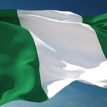
 …as she unveils her new book on Maritime and ‘Blue economy’
…as she unveils her new book on Maritime and ‘Blue economy’
By Chris Onuoha
“The maritime domain has always been crucial for human development,” says a maritime expert, Prof Eric Stern, President, Strategic Operations and Sediment Management Tipping Point Resources Group, United States.
In his assessment of its cruciality he quoted, “A 2016 report by the United Nations Environment Programme notes its importance in regulating climatic situations, supplying food, enabling transportation, security, trading and politics.”
Speaking further, he added that “As populations keep growing and as globalization continues to extend the reach of marine activities beyond previously existing jurisdictions, it is crucial to prevent further devastation of the environment and achieve the dream of a vibrant Blue Economy.”
Yes, you can say “Vibrant Blue Economy,” because often ignored, is the importance of this sector of economy heavily controlled by Africa’s inland water ways, oceans and peninsulas to other means.
This assertion is a vivid purview of the strength of a new book on maritime, published by an accomplished maritime expert, Dr. Felicia Chinwe Mogo, founder, African Marine Environment Sustainability Initiative (AFMESI), and staff at Nigerian Maritime Administration and Safety Agency, (NIMASA).
In this recent publication by Mogo, titled “Regulating the Marine Environment of Africa Towards a Sustainable Blue Economy: The Nigerian Scenario” published by Harmony Publishers in December 2020, she focused on the acronym, ‘Blue Economy’ as an increasingly popular term that has become a sort of rallying call for stakeholders to look into and explore for justifiable economic importance of the marine sector.
According to her, ‘it aims to ensure that our oceans are governed in a sustainable way, in stark contrast to their current wanton abuse,’ but she however added that, “to achieve the Blue Economy in Africa, we certainly need a strong grasp of its theoretical, geographical, biophysical, and historical current state, its governance and regulatory climate, opportunities as well as challenges in its attainment and existing informative case studies globally, that may serve as comparators, remarked Mogo in her preface to the book.
All the information contained in the book according her, will help to identify actionable ways of moving forward and also provides that strategic rallying call to realize Africa’s ‘Blue Economy.’
Prof Eric Stern recalled in his forward to the book that “Recently, the earth’s oceans have been accorded more importance globally, a welcome development that was catalyzed by small island states (SIDs) whose efforts have been substantial in birthing the Blue Economy paradigm.”
He said; “There is vast potential in Africa’s inland waters, oceans and seas, island states, and peninsulas. Therefore, we must pay attention to how oceans are currently being used for socio-economic gain and the attendant detrimental environmental impacts of these activities.”
Speaking further, he noted, “To ensure that sustainability is entrenched as a tenet in the governance of the marine environment, the International Maritime Organisation (IMO), the responsible agency of The United Nations charged with the overall responsibility of protecting global Oceans, has put several international conventions in place to aid countries in creating regulations to protect the maritime domain…” “…it becomes imperative for Nigeria and the entire African continent indeed to ensure adequate compliance monitoring and enforcement of marine protection instruments. This must be done in close partnership with relevant regional and global bodies. Of particular importance is the evaluation of what has worked for other nations and the identification of the best approaches suited to the Nigerian scenario,” quoted Stern.
READ ALSO: NIMASA stresses indigenous participation in Cargo freight
The book, segmented into 7 chapters with over 187 pages started with an overview of Nigeria’s Maritime sector with a beam light on the Niger Delta and Coastal zones in Nigeria and a general overview of International Maritime Organisation (IMO) and its component organs.
It moved forward in Chapter 3 with a background check on environmental stressors and strains in Nigeria’s marine environment and also, a historical look at the agencies and stakeholders involved in the environmental protection and management in Nigeria.
Chapter 5 dealt with the understanding the values of sustainable blue economy with emphasis on the regional block agreements and showcasing diplomatic approaches by countries like Norway, Canada, Seychelles and other African countries, while chapter 6 focused on agenda setting on what the future of maritime should look like, pointing at various sectors such as Ecowas Maritime Dorman, Ecowas Integrated Maritime Strategy and others as a focal point.
The book concludes in Chapter 7 with a strong call for creating appropriate indices, proffering way forward and building adequate partnership to actualise the sustainable blue economy in Nigeria.
Dr Mogo in her side views stated that the book was borne out of serious insight and need to address a particular sector in Nigeria’s economy.
“Having acted for thirty-four years in different capacities including via agencies, ministries and various international avenues to contribute to the protection of Nigeria’s environment, I have had the opportunity to incubate insights about stewarding our resources for sustainable development.”
Speaking further, she said, “Specifically, I have spent considerable time reflecting on Nigeria’s marine environment, which holds enormous potential for our sustainable growth as a nation, and yet remains understated. For over ten years, I have toyed with the idea of documenting my ideas on how to optimize Nigeria’s marine environment for the benefit of its entire population. I am glad to have finally made this idea a reality via the book you hold.”
Mogo said that Nigeria is endowed with enormous maritime resources that can directly contribute to the total wellbeing of its population, especially coastal communities, in terms of direct provision of food and meaningful employment.
“Indirectly, natural resources from the ocean provide the bedrock of the nation’s Gross Domestic Product (GDP) and foreign reserve earnings. Although currently under optimized, the maritime sector also provides employment for the country’s population through sea-based activities.
“However, due to the inadequate administration of regulatory instruments, the marine environment is vulnerable to detrimental exploitation in the process of resource extraction.
“This situation coupled with climate change, the trans-boundary shipment of hazardous wastes, coastal erosion, flooding and marine litter accumulation, exacerbates harmful impacts to the environment and erodes the health of the people, animals and habitats connected to them. We need to be more ambitious about our efforts to safeguard our marine environments and to treat them as the heritage and asset that they are,” Mogo concludes.
Vanguard News Nigeria
The post ‘Nigeria endowed with enormous maritime resources that can cater for wellbeing of its population’ appeared first on Vanguard News.




![#BBNaija: Man behind Big Brother’s voice finally shows his face [Video]](https://1.bp.blogspot.com/-5YubWO7KWRE/YVOJnnIByNI/AAAAAAAAEfs/SE8a_zdPx-UbiZNUiSfbrm0ME81BuHFWACLcBGAsYHQ/w680/big-brother.x25186%2B-%2Bnaijamedialog.jpg)

![[Music] Jakhada - Kana Nan](https://blogger.googleusercontent.com/img/a/AVvXsEjyq50Q27kdxKlzTRdQ2Q2MIDV_loiuSwAA853p27nk6EG4-whzhZ73Y3FvJwm40mrVqqWFhbMR6izOrlXpyhv_Drh5mgMJaJaqvnURqcKye_dDfkLm1q5qI-NUGaIQKJLVJb6vcVmLwe7tcEyFD-AVAF3465k9dIbughUqo9JUWvg7IeOYrLhRMf0isA=w680)



![[Video Skit] Skelevalency -Tell ichie to leave me](https://blogger.googleusercontent.com/img/a/AVvXsEjmG7Wl_4XVI78hdj5MzSppE7WL04gpgSFZn8DLQt8cZ2Fjjfzxrqocmn8DBlJEJiyP3rboZshGzbYXTeUJMnGeTJoLJDTvcMxx-w8ZtfX5exeYQuBW5LYw_Q7WEYRJcH0QP3NH12P15g4fvZajNejqhSNlmb1HneOuzqHsZgzrl25yrF_4s2EFxgixqg=w680)
![[Music] 2Much - MPA WIRE WIRE](https://blogger.googleusercontent.com/img/a/AVvXsEj-R6AbZ6QuFHrVKm6KSuIb8M0wjEH_KQOAguAMPxxw587s6AYRgkvaRIKJ06xGJs726r0u7j1LJfKs1emAlodRJ0sOWO3qtcfTDPF7vmHa0H-5VuFAnaL8K0fRaMtg5OT0VdPFeIV3S7WzOz7H0FTmhEs1RwApTWnGJ4hSkhzs2ySqzFzgi9g6vWcEuw=w680)






Advertise your business here at cheap rate and get large audience to your market. Call/Msg Teemikemedia: 07060733664 to get started.